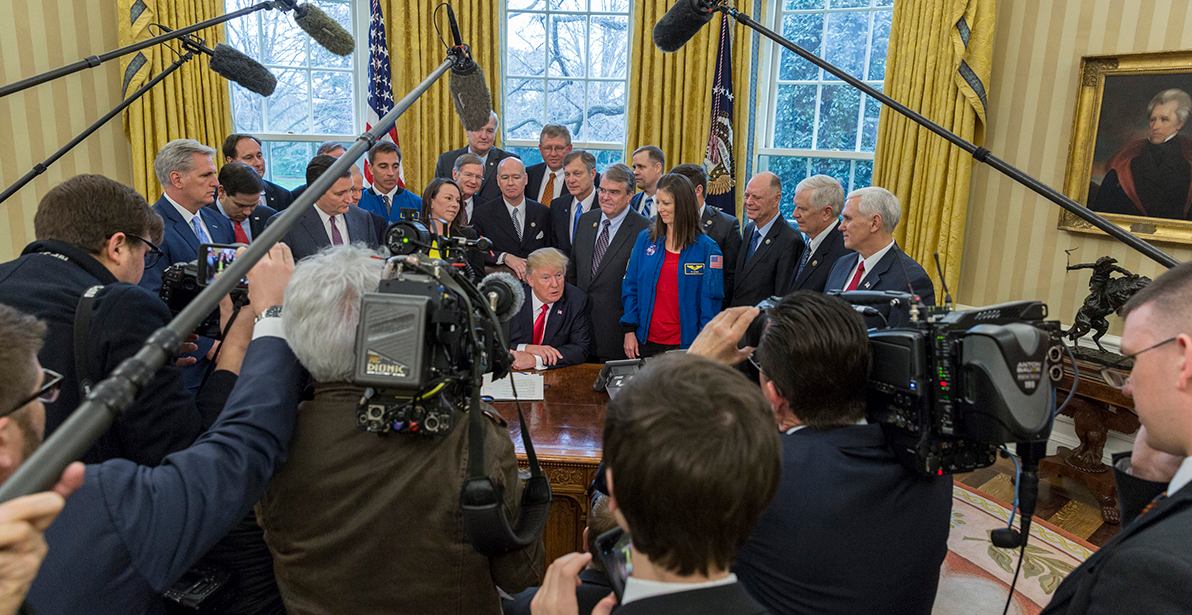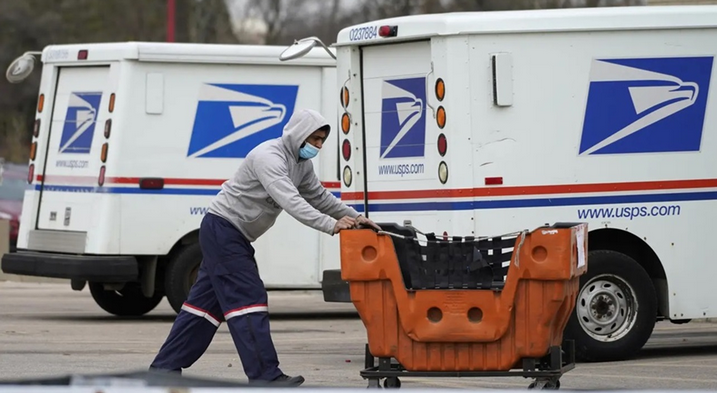Photos: Twitter\MoveOn\YouTube
In 2021, the state legislative push to restrict access to voting was not only aggressive — it was also successful. Between January 1 and December 7, at least 19 states passed 34 laws restricting access to voting. More than 440 bills with provisions that restrict voting access have been introduced in 49 states in the 2021 legislative sessions.
These numbers are extraordinary: state legislatures enacted far more restrictive voting laws in 2021 than in any year since the Brennan Center began tracking voting legislation in 2011.
More than a third of all restrictive voting laws enacted since then were passed this year. And in a new trend this year, legislators introduced bills to allow partisan actors to interfere with election processes or even reject election results entirely.
Unfortunately, the momentum around this legislation continues.
So far, at least 13 bills restricting access to voting have been pre-filed for the 2022 legislative session in four states. In addition, at least 88 restrictive voting bills in nine states will carry over from 2021. These early indicators — coupled with the ongoing mobilization around the Big Lie (the same false rhetoric about voter fraud that drove this year’s unprecedented wave of vote suppression bills) — suggest that efforts to restrict and undermine the vote will continue to be a serious threat in 2022.
There are solutions to this alarming and unprecedented attack on our democracy. Congress has the power to take bold action now to protect American voters from the kinds of restrictions enacted this year and the looming threats to voters and elections that may be imposed in 2022 and beyond. Two bills that would head off many of the assaults on free and fair elections have passed the House of Representatives and are awaiting Senate votes.
The Freedom to Vote Act is a broad package of voting, redistricting, election security, and campaign finance reforms that would ensure minimum national standards for voting access for every American. It would also prevent partisans from sabotaging election results. The John Lewis Voting Rights Advancement Act would prevent discriminatory practices and rules in voting from being implemented in states and localities where discrimination is persistent and pervasive, protecting access to the vote for all eligible voters, regardless of race, color, or membership in language minority groups. And it would restore voters’ ability to challenge discriminatory laws nationwide.
Looking Ahead to 2022
In 2022, the Brennan Center expects continued efforts to restrict access to voting and to enable partisans to sabotage elections. The risk is evident in:
- States where restrictive bills are carrying over into 2022
- States where legislators have already pre-filed restrictive voting bills for the 2022 legislative sessions
- States where legislatures or partisan actors are working to circumvent governors’ vetoes
- States where governors have vetoed restrictive bills this year, or where 2022 gubernatorial elections could lead to the election of governors who support voting restrictions
- States that have been the site of partisan election reviews
1. Carryover Bills
At least 88 restrictive bills in nine states will carry over into the 2022 legislative sessions. The number of restrictive carryover bills, along with 13 restrictive pre-filed bills (discussed below), is greater than the number of restrictive bills considered by state legislatures in most years in the past decade.
These carryover bills were introduced during the 2021 state legislative sessions but did not reach final resolution this year. Twenty-five states that have legislative sessions scheduled in 2022 allow for carryover bills. Of the nine states that have restrictive carryover bills, two enacted restrictive voting laws this year (KS, NY); three passed restrictive voting bills that were vetoed by the governor (MI, PA, WI); and three have conducted or have ongoing partisan reviews of the 2020 election (MI, PA, WI).
The majority (57) of the carryover bills would continue this year’s trend of restricting access to mail voting. Recurring restrictions in these bills include shortening the window for applying for a mail-in ballot (e.g., PA H.B. 1706); shortening the deadline for delivering mail ballots (e.g., KS S.B. 307); prohibiting sending out unsolicited mail ballot applications (e.g., MI H.B. 5268); and restricting voters’ ability to receive assistance with returning a mail ballot (e.g., OH H.B. 387).
Seven bills would expand opportunities for voter purges. Five bills propose new criminal penalties for election officials who mail out unsolicited mail ballots or for individuals who assist voters with returning mail ballots, including those assisting voters who have disabilities. Twenty-three bills would establish or expand voter identification requirements for either in-person or mail voting, and three would require proof of citizenship to register to vote.
2. Pre-Filed Bills
A number of states allow lawmakers to “pre-file” bills ahead of the next legislative session. The pre-filed bills are not yet moving, but they are typically among state lawmakers’ top priorities for the 2022 legislative session.
As of December 7, at least 74 bills addressing voting access and elections have been pre-filed for the 2022 session in 11 of the 22 states that allow bills to be pre-filed so far.
Of the pre-filed bills, at least 13 bills in four states would make it harder for voters to cast a ballot.
Of the restrictive pre-filed bills, at least seven would limit access to mail voting, including shortening the time period in which a mail ballot may be requested, eliminating Covid-19 as an excuse for voting by mail, and expanding the grounds on which an absentee ballot can be rejected. Five pre-filed Missouri bills contain provisions that would impose a stricter voter ID requirement for in-person and mail ballots.
Additionally, legislators in at least five states have pre-filed six bills for 2022 to initiate or allow illegitimate partisan reviews of election results.
3. Circumventing Governor Vetoes and 2022 Gubernatorial Races
In at least two states (MI and PA), state legislators or other actors have taken steps to enact restrictive legislation through constitutional amendment (PA) or ballot initiative (MI). As discussed below, both methods would disempower the states’ governors and the Michigan ballot initiative would preclude the majority of the state’s own voters from weighing in on the proposal.
In addition, the winners of the 2022 gubernatorial races could also impact legislatures’ ability to enact restrictive voting legislation. Voters in 36 states will be electing a governor in 2022. Three states — Michigan, Pennsylvania, and Wisconsin — have state legislatures that passed restrictive voting legislation in 2021 that was vetoed by the governor and gubernatorial elections in 2022. While governors who support voting access have held the line against restrictive voting bills this year, those measures will be more easily enacted in the event of the election of governors who support restrictive voting policies.
4. Partisan Election Reviews
A disturbing legislative trend from 2021 is the launching of illegitimate partisan reviews of election results in a number of key states. Specifically, partisan state legislators have empowered other partisan actors who are not part of the election administration process to access and review ballots and other materials from the 2020 elections. As the Brennan Center has documented elsewhere, these reviews have typically been designed to set the stage for future efforts to suppress votes and subvert election outcomes. In 2021, questionable and politically motivated reviews of the 2020 election results occurred or are ongoing in six states (AZ, GA, MI, PA, TX, and WI).
Now, legislators in five states (FL, MO, NH, SC, and TN) have pre-filed six bills for 2022 to initiate or allow similar partisan reviews of election results. Four of these bills would initiate reviews of the 2020 election, and two of them would set up processes for partisan reviews of future elections.
Key States to Watch
Below are key states to monitor in 2022. These states have already shown some of the warning signs discussed above.
Arizona legislators passed three restrictive voting bills this year, and they have pre-filed at least one bill that would restrict voting access by imposing stricter identification requirements. Additionally, state legislatures introduced three bills in 2021 that would have directly empowered partisan officials to reject or overturn election results. The state also conducted an infamous partisan election review this year, when it contracted a third party to audit Maricopa County’s 2020 election results. Despite no evidence of fraud, the review has drummed up false rhetoric around voter fraud and galvanized public officials to push for restrictive voting legislation.
Georgia passed S.B. 202, a restrictive omnibus law that criminalizes passing out water to voters waiting in line. The law also politicizes the state’s board of elections and grants the board new powers to remove professional election officials and seize control of election administration in specific jurisdictions, which could lead to partisan influence in the election certification process. Moreover, partisan actors sought to review the election results in Fulton County because of false allegations of fraud, despite the fact that state election officials conducted a statutory audit that led to a full hand count along with two machine counts.
Georgia has high-profile elections for secretary of state and governor in 2022. One candidate for secretary of state has repeated false fraud claims and voted not to certify the results of the 2020 presidential election, while two candidates for governor have explicitly stated that they would not have certified the results of the 2020 election had they been in office at the time.
Michigan’s legislature passed — but the governor vetoed — three restrictive voting bills; 15 restrictive bills are carrying over into the 2022 legislative session; and the state has a gubernatorial race next year.
Additionally, partisan actors have turned to a ballot initiative to pass restrictive measures to bypass both the governor and the people. Due to a quirk of the Michigan Constitution, if a ballot initiative garners the required number of signatures of support (340,047), the legislature gets a chance to pass it in its own right. This means the majority of Michigan voters never get an opportunity to vote on the initiative, and the governor has no power to veto such an initiative if the legislature passes it.
Anti-voting activists are currently organizing a restrictive ballot initiative that would, among other things, eliminate the ability for voters who lack a voter identification to cast a regular ballot; require voters to put the last four digits of their Social Security number on their voter registration; require voters to provide their driver’s license number, state ID card number, or the last four digits of their Social Security number on absentee ballot applications; and prohibit either the secretary of state or local election officials from affirmatively sending absentee ballot application forms to voters. The number of signatures required to give the green light for the Michigan Legislature to roll back the voting rights of millions of Michiganders — unchecked by the governor or voters — is fewer than the actual number of votes separating the two major candidates in the state’s last gubernatorial election.
In one Michigan county, a partisan group was given access to voting machines to review the 2020 election results, despite the fact that Michigan has a robust, accurate risk-limiting audit system already in place. And lawmakers introduced a bill that would have allowed a member of a county board of canvassers to rescind their vote to certify the results of an election — which is exactly what President Trump sought in Wayne County after the 2020 election.
Pennsylvania’s legislature passed one wide-ranging restrictive bill this year, which the governor vetoed. Thirty restrictive bills are carrying over into the 2022 legislative session. The state also has a gubernatorial race next year. Four of the restrictive carryover bills are constitutional amendment proposals that would enable state legislators to get restrictive voting laws on the books without the governor’s review. (These proposals would need majority approval by the 2021-2022 and 2022-2023 state legislatures, and then majority approval from voters).
Further, officials in one rural Pennsylvania county agreed to a questionable partisan review of their 2020 election results by a private security firm with no previous experience auditing elections and funded by Sidney Powell, a Trump-affiliated attorney who pursued unsuccessful post-election lawsuits based on debunked conspiracy theories. A Pennsylvania state senator who was present at Capitol Hill during the January 6 insurrection has since used the “results” of this questionable review to push for further restrictive voting legislation.
Texas passed S.B. 1 this year, one of the harshest restrictive voting bills in the country. The law makes it harder for voters with disabilities and language access barriers to obtain assistance, constrains election workers’ ability to stop harassment by poll watchers, and bans 24-hour and drive-thru voting, among other measures.
Texas legislators also introduced legislation this year that would have provided for the overturning of election results and that explicitly called for third party forensic reviews of the election results. Even without authorizing legislation, the secretary of state’s office launched an unnecessary audit into the 2020 election in four Texas counties. Even though routine audits had already occurred, documents published by the secretary of state’s office would allow for a manual count of votes in those counties, as well as an examination of other election records and voter lists.
Wisconsin’s legislature passed two restrictive voting bills this year, which the governor vetoed. Thirteen restrictive bills are carrying over into the 2022 legislative session, and the state has a gubernatorial race next year.
Wisconsin has also initiated an “investigation” into the 2020 election results. The effort lacks transparency, fairness, and credibility, and is being staffed by a well-known partisan operative with a prior history of spreading false claims of election fraud.
Missouri, New Hampshire, and South Carolina have each pre-filed at least one voting bill that would restrict access to the vote, as well as bills that would initiate or allow for partisan reviews of election results in 2022. Missouri also introduced legislation this past session that would have empowered partisan officials to overturn election results.
Florida and Tennessee have each pre-filed bills that would initiate partisan reviews of the 2020 election results in 2022.
Looking Back at 2021
Between January 1 and December 7, at least 19 states passed 34 restrictive laws. At the same time, many state legislatures worked to ensure greater voting access. Between January 1 and December 7, at least 25 states enacted 62 expansive laws.
This expansive legislation does not outweigh the impact of the restrictive laws. The expansive and restrictive sets of legislation are primarily passing in different states — 11 states enacted only restrictive laws in 2021, while 17 states enacted only expansive laws. As a result, there is a stark and growing divide in the nation, where access to the right to vote increasingly depends on the state in which a voter happens to reside. That divide only stands to widen next year unless Congress acts.
Restrictive Legislation
Between January 1 and December 7, at least 19 states passed 34 restrictive laws. The restrictive laws make it more difficult for voters to cast mail ballots that count, make in-person voting more difficult by reducing polling place hours and locations, increase voter purges or the risk of faulty voter purges, and criminalize the ordinary, lawful behavior of election officials and other individuals involved in elections.
The state laws restricting voting access are not created equal. Four of the thirty-four laws are mixed, meaning they contain pro-voter policies as well as policies that make voting more difficult (IN S.B. 398, KY H.B. 574, LA H.B. 167, OK H.B. 2663). Other laws are relatively narrow in their scope (e.g., NV S.B. 84, UT H.B. 12). By contrast, Florida, Georgia, Iowa, and Texas enacted omnibus laws that each contain several new restrictive provisions.
More than 440 bills with provisions that restrict voting access have been introduced in 49 states in the 2021 legislative sessions.
Expansive Legislation
Between January 1 and December 7, 2021, at least 25 states enacted 62 laws with provisions that expand voting access. These expansive policies ease the processes for requesting and casting a mail ballot and having that ballot counted, expand early voting time periods, improve access for disabled voters, strengthen language access provisions, expand or implement automatic voter registration, and restore voting rights to formerly incarcerated people, among other measures.
More than 1,000 bills with expansive provisions have been introduced in 49 states in the 2021 legislative sessions.





